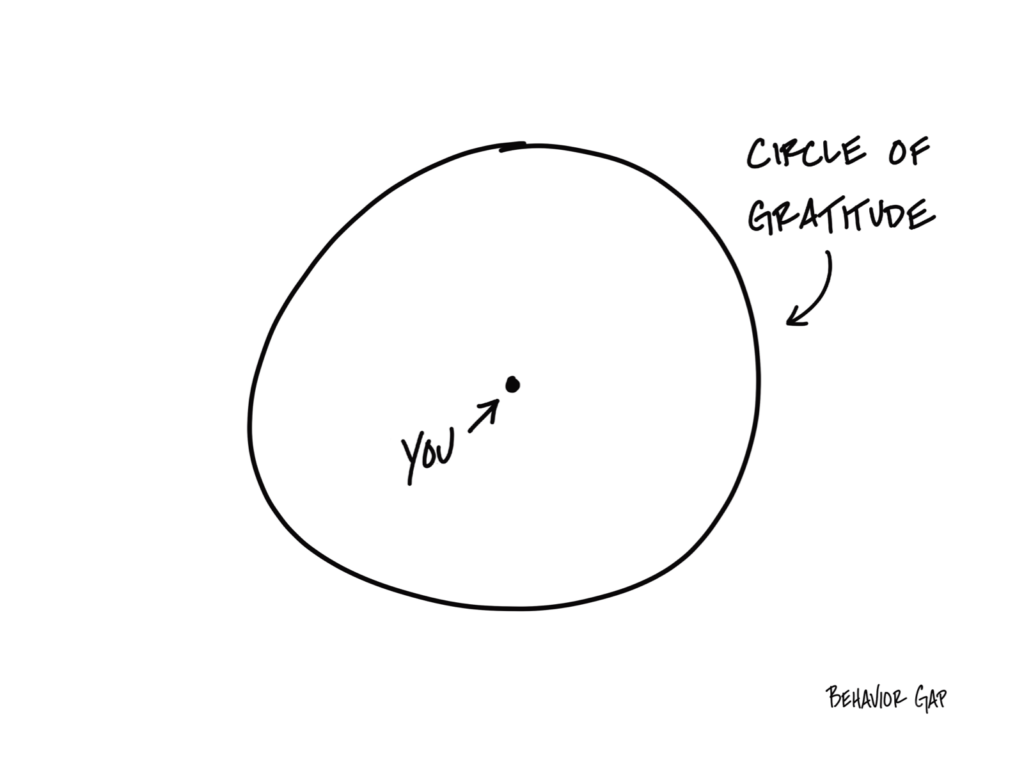Details Are Part of Our Difference
David Booth on How to Choose an Advisor
20 Years. 20 Lessons. Still Taking the Long View.
Making the Short List: Citywire Highlights Our Research-Driven Approach
The Tax Law Changed. Our Approach Hasn’t.
Category: Philosophy
Weathering Uncertainty: Why Staying Invested Still Wins
In this short video, Matt Zenz discusses how to navigate today’s market highs along with the current geopolitical tensions that have some investors worried. Drawing a parallel to the market events from 2019 through 2025, he reminds viewers that—even amid global crises such as pandemics, wars, inflation, and policy shifts—the U.S. stock market (as measured by the S&P 500 Index) has more than doubled.
In other words, by enduring the roller coaster ride, staying invested, and taking the long view, Hill clients aim to capture the market’s inherent growth over time.
Source: S&P 500 Total Return Index (Bloomberg), data from 9/30/2019–9/30/2025.
TRANSCIPT
Matt here, the Chief Investment Officer at Hill Investment Group. We’ve heard from a lot of clients that you love videos, so we answered the call. Here’s another one. Today we’re going to be talking about market risk and current heightened geopolitical tensions.
Right now, the markets are at all time heights and it feels too good to be true. It feels like the shoe has to drop and markets are going to dip. And so we’ve had a few client conversations where our clients were concerned about that and they wanted to know what we should do. So to help answer this question, let’s go back in time a little bit.
Let’s go back to 2019 and imagine we were having a similar conversation. But rather than there being uncertainty I gave you, I said, in the next five years, there’s going to be a global pandemic where entire supply chains are going to be shut down. There’s going to be uncertainty around political elections. Russia is going to invade Ukraine and it’s going to create a potential European conflict. We’re gonna have unprecedented inflation, higher than we’ve ever seen since the 1970s. We’re also gonna have an economic policy in the US where we do global tariffs, completely reordering the global supply chains, not just against their enemies, but also our allies.
If I told you all of these things were going to happen over the next five, six years, would you wanna be invested in the stock market?
You probably would say, no way, get me out. Well, when we look at what happened, the market’s actually doubled since 2019. And if you had gotten out even with perfect foresight of what was going to happen, you would have half the money you’d have today. Now, there is uncertainty in the future as well, but here’s what we do know.
What we do know is that markets are always priced to give investors a positive return. If investors thought the market was going to go down, no one would buy it at that price and the price would correct. And so what we do know is the best way to manage this uncertainty is to stay invested, to capture the returns that the market gives you with the ups and downs. And by taking the long view, you will end up in the best financial situation.
Our Office Hours During the Season of Gratitude

As the holiday season approaches, our team wishes you the gift of slowing down—to reflect, recharge, and enjoy the moments and people that matter most. In that spirit, and for your planning purposes, we want you to know that our office will be closed on Thursday, November 27, and Friday, November 28, in observance of Thanksgiving.
If you anticipate needing anything during that time frame, let’s address it now. Call us at (314) 448-4023 or set a time to meet. It’s all part of finishing the year strong!
Wishing you and your loved ones a peaceful and joyful holiday season, with gratitude,
The Hill Investment Group Team
SPECIAL HILL EVENT: An Evening with Author Carl Richards

We’re delighted to share that Hill Investment Group will host a very special evening with Carl Richards—internationally recognized author, speaker, and podcaster—on Wednesday, November 12, 2025, at The Racquet Club in St. Louis, which will be one of Carl’s first stops on his national book launch tour for the release of his latest work Your Money: Reimagining Wealth in 101 Simple Sketches.
Many of you know Carl through his Behavior Gap sketches and writing. His simple drawings and powerful insights remind us that clarity often comes from seeing complex ideas made beautifully simple.
This gathering will include cocktails, heavy hors d’oeuvres, and a lively conversation with Carl about his newest work and what it means to “take the long view” in both money and life.
Event Details
The Racquet Club — 476 North Kingshighway, St. Louis, MO 63108
Gathering at 6:00 PM | Program Begins at 6:30 PM | Concludes at 7:45 PM
Attire: Jacket, No Tie. No Denim, Please.
A few seats remain. Please RSVP by November 7, or call us at (314) 448-4023.
Do you want something like this in webinar form or in your city? Email me.

